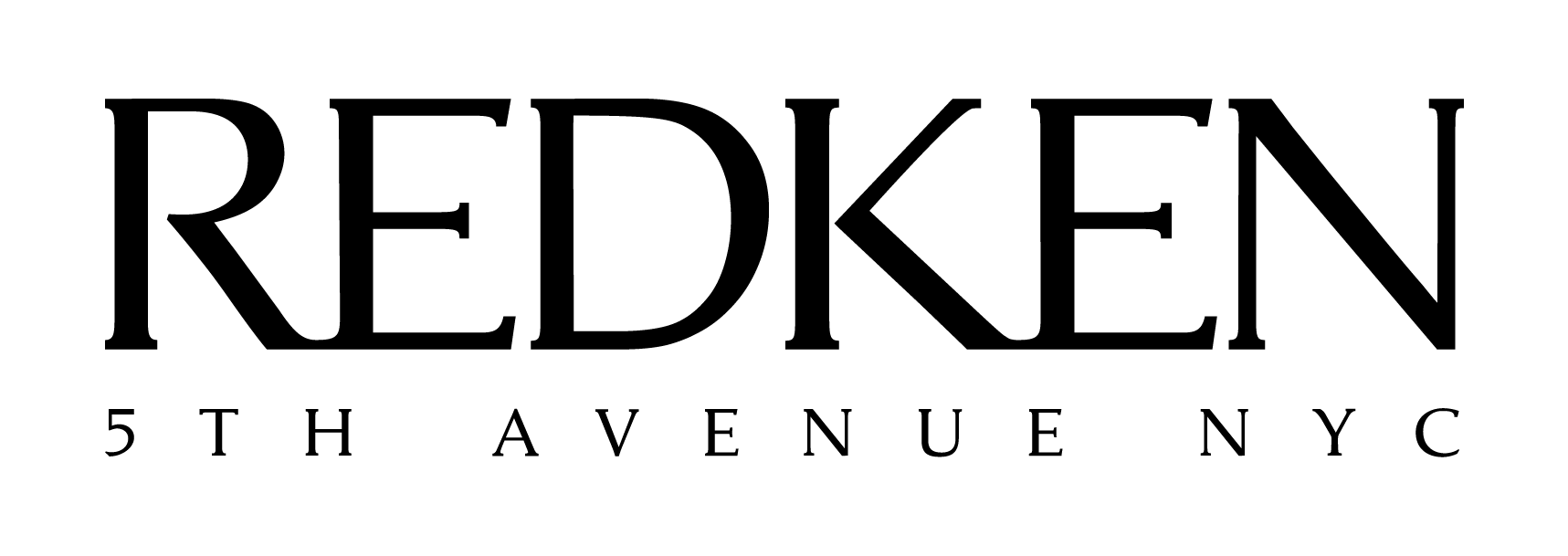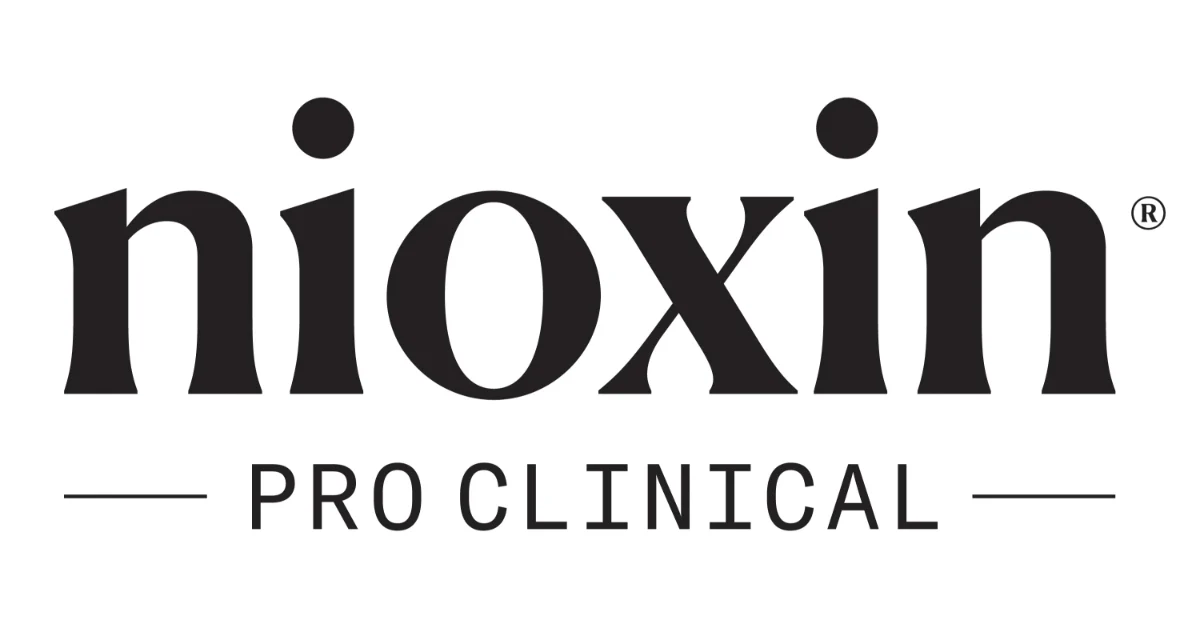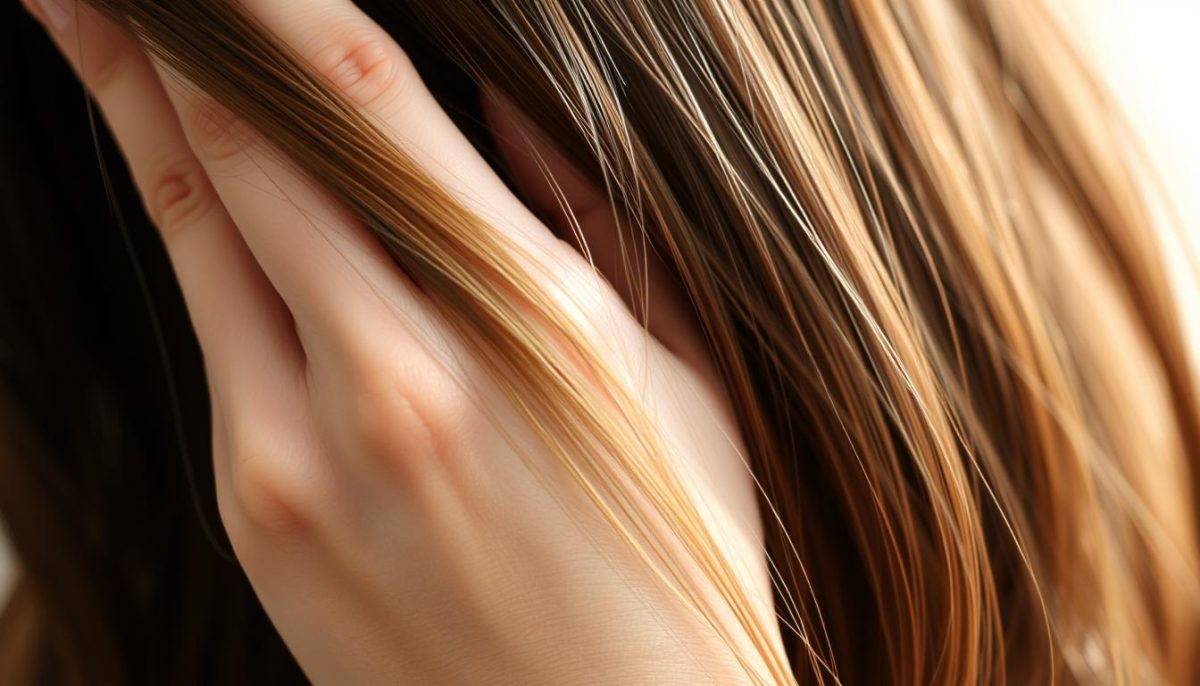FAQs, Hair Treatments, Hare Care
What Works for Dandruff or Scalp Issues?
Ever thought why dandruff is more than a minor issue? Many of us have scalp problems that aren’t just about flakes. But we tend to ignore them. Understanding how to tackle itchy scalp is important. In this piece, we’ll dive into what causes these issues, how they show up, and ways to fix them. This info will suit our Aussie way of life. It aims to boost our confidence and improve our scalp’s health.
Key Takeaways
- Understanding the types of scalp issues is essential for proper treatment.
- Dandruff can be a symptom of more significant health concerns.
- Effective scalp treatment includes both over-the-counter remedies and natural options.
- Lifestyle factors play a significant role in the health of our scalps.
- Preventative measures can help maintain a healthy scalp and avoid future issues.
- Seeking professional help is crucial when symptoms persist or worsen.
Understanding Scalp Issues
Many people deal with scalp problems that can hurt not just their hair but also their confidence. Knowing about common scalp issues, their symptoms, and keeping the scalp healthy is key. It helps us act fast and take good care of our scalp.
Common Types of Scalp Conditions
Some common scalp conditions include:
- Dandruff
- Scalp psoriasis
- Seborrheic dermatitis
- Folliculitis
- Allergic reactions to hair products
Symptoms to Look Out For
Being aware of the symptoms can help us find out what’s wrong. The usual signs of scalp issues are:
- Itching
- Flaking and scaling
- Redness and inflammation
- Dryness or excessive oiliness
- Hair thinning or loss
The Importance of Scalp Health
Having a healthy scalp is crucial for more than just looking good. It plays a big part in keeping our hair healthy. By taking care of any scalp issues quickly, we can grow better hair, feel less irritation, and boost our overall happiness. When we look after our scalp, our hair gets healthier, and we feel more confident.
Causes of Dandruff and Other Scalp Issues
Getting to the bottom of dandruff and scalp problems helps us keep our scalp in good shape. Things like skin issues, what’s around us, and our daily choices all play a part.
Skin Conditions and Allergies
Conditions like seborrheic dermatitis are a big reason for dandruff. They cause too much oil and make yeast grow. Allergies can also make the scalp red and sore, making dandruff worse. Knowing about these can help find the right treatment.
Environmental Factors
The world around us affects our scalp’s health too. Stuff like pollution, bad weather, and changing humidity can dry out or irritate the scalp. Being aware helps us look after our scalp better.
Lifestyle Choices
What we do every day matters for our scalp’s health. A bad diet, not enough water, and lots of stress can cause dandruff. Choosing better foods and managing stress can fix many scalp issues.
Dandruff vs. Other Scalp Conditions
Knowing the difference between dandruff and other scalp issues is key to treating them right. People often get mixed up. They struggle to tell dandruff apart from scalp psoriasis and scalp dermatitis. Each problem shows different signs and needs its care plan. Fungal problems can make things worse by causing more symptoms. Figuring out these differences helps in picking the best treatment.
Psoriasis and Seborrheic Dermatitis
Scalp psoriasis and seborrheic dermatitis are often confused with dandruff. Scalp psoriasis is an immune system issue. It causes thick, silvery scales and red areas that itch and feel sore. On the other side, seborrheic dermatitis leads to oily, yellowish flakes. It’s linked to oily skin. These two conditions need special treatments, different from regular dandruff care.
Fungal Infections
Dandruff-like signs can come from fungal scalp problems. Things like ringworm cause itchy, flaky skin and even hair loss. It’s important to spot a fungal infection early. Treatments for fungus are not the same as those for simple scalp dryness and flakes. A doctor can help figure out the best way to treat it.
Allergic Reactions
Sometimes, hair products cause allergies that look like dandruff. Ingredients in shampoos, conditioners, or hair dyes may irritate the scalp and cause flakes. If we stop using certain products and watch how our scalp reacts, we can find the problem. Knowing exactly what’s wrong helps us choose how to treat our scalp better, keeping it healthy.
Effective Treatments for Dandruff
When you have dandruff, you want to know all the ways you can treat it. You can pick from many treatments, like products you buy at the store or natural remedies for your scalp. They can help with the bothersome bits. For really bad dandruff, you might need something stronger from the doctor. Let’s look into these choices.
Over-the-Counter Shampoos
Many people get rid of dandruff using special shampoos. These have ingredients made to fight off dandruff. Common ingredients include:
- Ketoconazole – Antifungal properties help reduce flaking.
- Salicylic Acid – Works to remove dead skin cells and reduces scaling.
- Coal Tar – Slows down skin cell turnover, easing symptoms significantly.
- Zinc Pyrithione – Combats fungus and soothes irritation.
Using these shampoos regularly can make your scalp healthier and get rid of flakes.
Natural Remedies We Can Try
If you like natural solutions, try some home remedies. You can use things like:
- Coconut Oil – Its moisturising properties soothe dryness and irritation.
- Tea Tree Oil – Known for its antifungal capabilities, it can alleviate dandruff symptoms.
- Apple Cider Vinegar – A natural acetic acid that promotes scalp health by balancing pH.
These treatments not only help with dandruff but also make your hair softer and healthier.
Prescription Treatments
If store-bought shampoos and home remedies don’t cut it, it’s time to see a doctor. They might suggest strong medicines or creams made to fight hard-to-beat dandruff. These treatments are picked just for you, to get you the best results.
Lifestyle Changes to Consider
Our daily doings hugely impact our scalp’s well-being. Eating well and handling stress can boost our scalp’s health. Doing so might make our scalp better.
Diet and Nutrition
Eating right is key for a healthy scalp. Enjoying foods rich in omega-3s, like salmon and walnuts, helps a lot. Chickpeas and pumpkin seeds are packed with zinc, which keeps our scalp skin healthy. Eating various fruits and veggies gives us many vitamins and minerals for our scalp.
Stress Management Techniques
Stress can make scalp problems worse. Finding good ways to handle stress is crucial. Mindfulness meditation, yoga, or simple breathing exercises can ease our mind. Regular exercise also cuts stress and boosts our mood and health. Managing stress well means fewer scalp issue outbreaks.
The Role of Hair Care Products
Picking the right hair products is crucial for a healthy scalp. When choosing shampoo, it’s important to pick one that suits our specific scalp needs. Lots of products promise to keep the scalp healthy, but knowing what’s in them is key to actually helping.
Choosing the Right Shampoo
With so many shampoos available, finding the right one is essential. We should look for products with natural ingredients like tea tree oil, aloe vera, and chamomile. They help calm irritation and nourish the scalp well. Brands like Neutrogena and Head & Shoulders have special shampoos for different scalp problems. Always read labels to make sure the shampoo will help, not harm.
Avoiding Harsh Chemicals
To keep our hair and scalp healthy, avoiding harsh chemicals is a must. Many shampoos have sulfates, parabens, and artificial scents that can worsen scalp issues. Choosing organic or sulfate-free options is better. This choice helps protect our scalp and improves hair health. By avoiding harmful ingredients, we help maintain a healthier scalp.
Home Remedies for Scalp Issues
Many of us look for natural ways to fix scalp problems. We often use home remedies for scalp care. These methods offer relief and usually require common household items. This section talks about popular natural treatments like aloe vera, essential oils, and apple cider vinegar.
Aloe Vera and Coconut Oil
Aloe vera is great for calming and moisturising the scalp. When mixed with coconut oil, the duo boosts hydration and fights germs. Just mix aloe vera gel with coconut oil, apply it to your scalp, wait for 30 minutes, then wash off with a soft shampoo.
Essential Oils for Scalp Care
Essential oils, such as tea tree or lavender, greatly benefit scalp health. They have properties that fight fungus and reduce swelling. This helps get rid of dandruff and soothes the scalp. Mix a few drops of an essential oil with a carrier oil like jojoba. Then, gently massage it into your scalp for deeper nourishment.
Apple Cider Vinegar Solution
Apple cider vinegar is a natural fix for balancing scalp pH levels. It cuts down flakes and boosts shine. Mix it with water (1:1 ratio) and use it as a rinse after shampooing. This easy mix aids in controlling dandruff and makes hair feel clean and refreshed.
When to Seek Professional Help
It’s important to know when to get professional help for scalp problems. Many wonder if a professional should look at their scalp symptoms. Figuring out certain signs helps us decide correctly. If issues keep up and don’t get better with home treatments or store-bought products, it’s time for expert advice.
Signs That Indicate a Serious Issue
Looking out for warning signs is key to spotting serious scalp problems. Signs to watch out for include:
- Severe itching that messes with your day-to-day life
- Obvious redness, swelling, or sores on your scalp
- Continuous flaking or scaling that doesn’t get better
- Unexpected hair loss that doesn’t seem normal
- Symptoms that worsen even after treatment
Consulting a Dermatologist
If you see any signs mentioned, it’s smart to see a dermatologist. Getting professional help can lead to a better look at your scalp issues and better treatment options. Dermatologists can spot health issues that aren’t obvious to us. They have access to strong treatments that work better than what you can buy without a prescription.
Preventive Measures for a Healthy Scalp
Taking care of your scalp is crucial for keeping it healthy and full of life. By sticking to a daily scalp care plan and paying attention to the changes in seasons, we can keep our scalp in great shape all year round.
Daily Scalp Care Routine
Keeping up with a scalp care routine every day can really boost scalp health. Here are a few important tips:
- Pick a soft shampoo that matches your hair type and stay away from strong chemicals.
- Add natural oils like coconut or argan oil to keep the scalp moist.
- Massage your scalp often to improve blood flow and help hair grow.
- Drink lots of water to help keep your skin and scalp well-hydrated.
- Avoid using too much heat on your hair to prevent drying and irritation.
Seasonal Changes and Scalp Health
The changing seasons can really impact our scalp’s health, causing different issues as the year goes by. To cope, here’s what we can do:
- In winter, use a humidifier to stop the dry air from harming your scalp.
- In summer, shield your scalp from the sun using a headscarf or hat.
- Change your hair care items with the humidity to handle oiliness or dryness better.
By taking these steps, we can work out a solid plan for ongoing scalp care. This way, we can tackle seasonal scalp problems more successfully.
Understanding Scalp Hygiene
Good scalp hygiene is key for healthy hair and scalp. Washing regularly helps get rid of dirt, oil, and leftovers from hair products. Your scalp type can tell you how often to wash your hair. Keeping our scalps clean is crucial to our overall hair health.
Importance of Regular Washing
Washing our hair regularly is super important for keeping our scalp in good shape. It stops problems like dandruff and irritation and keeps our scalp balanced. Cleaning away dirt helps avoid buildup, which might slow down hair growth. A steady washing routine keeps our scalp fed, making our hair healthier.
How Often Should We Wash Our Hair?
How often we should wash our hair varies. It depends on our scalp type and what we do every day. Here’s a quick guide:
| Scalp Type | Recommended Wash Frequency |
|---|---|
| Oily Scalp | Every 1-2 days |
| Normal Scalp | Every 2-3 days |
| Dry Scalp | Every 3-4 days |
| Curly or Coily Hair | Every 5-7 days |
By knowing what our scalp needs, we can keep it super healthy. The right washing routine makes our scalp clean and our hair look great.
Exploring Alternative Therapies
On our quest for better scalp health, we’re looking at different non-traditional therapies. These include scalp massages, acupuncture, and using herbs. They support conventional treatments and can help shake off scalp problems. Plus, they’re good for your overall health.
Scalp Massages
Scalp massages are more than just relaxing. They’re becoming known for boosting scalp condition. Benefits of scalp massage benefits include better blood flow, which nourishes hair roots. This might make your hair grow better. Also, they can help you feel less stressed and tense, which is good for your scalp’s health.
Acupuncture and Herbal Remedies
Acupuncture could be a game-changer for scalp issues. It works by pressing certain points on the body, aiming to fix imbalances. This can lessen scalp problems. Herbal treatments are another path to explore. Using things like tea tree oil, which fights germs, can be a part of your scalp care. Exploring these alternative therapies might open new ways to heal.
Myths About Dandruff
When talking about dandruff and scalp health, we often hear dandruff myths that confuse us. These wrong ideas can cause wrong diagnoses and treatments that don’t work. It’s key to know the truth from the myths for effective scalp care.
Debunking Common Misconceptions
Many think dandruff comes from not washing enough. But, keeping clean is just part of it. Misconceptions about scalp health tend to miss the impact of skin conditions, the environment, and diet. There’s also a belief that only people with oily hair get dandruff. Yet, those with dry skin or various scalp issues can also face dandruff troubles.
- Myth: Dandruff equals poor hygiene.
- Truth: Hygiene matters, but skin conditions are also crucial.
- Myth: Only oily hair can have dandruff.
- Truth: Dandruff can trouble all hair types, including dry ones.
What Science Says
Science has busted many dandruff myths. Studies show that the yeast Malassezia, present on all scalps, can irritate some people, causing flakes. So, the notion that dandruff is just from dry skin isn’t right. We need to lean on solid science to understand our unique scalp needs and ignore the myths.
Staying Informed About Our Scalp Health
To keep our scalp in top shape, it’s vital to look into many resources. Joining support groups can give us real-life tips and shared stories. In these groups, we can meet others, ask questions, and feel supported knowing we’re not alone.
Resources and Support Groups
There’s a bunch of resources out there for scalp health. Websites, forums, and local gatherings are great places to learn more. Getting involved in these groups helps us talk openly about scalp problems. It feels good to connect with people who get what we’re going through, sharing advice and support.
Educational Materials We Can Access
Learning about scalp health is key on this journey. Books, online courses, and expert articles can really expand our knowledge. Understanding different issues, how to treat them, and ways to prevent them lets us take better care of our scalp. Being informed helps us face scalp challenges with confidence.
Our Final Thoughts on Scalp Care
As we finish talking about scalp health, we need to remember something important. Consistency in treating our scalp is vital. It helps us get long-lasting relief from issues like dandruff and other problems. By following a routine with special treatments and making some life changes, we help our skin and hair become healthier. Paying regular attention to our scalp care really makes a big difference as time goes by.
Also, knowing when to ask for help from doctors is key. If you’re dealing with ongoing symptoms or discomfort that won’t go away, it’s time to see a dermatologist or specialist. They can provide the right advice for effective treatment. It’s really important to be proactive about our health for a healthy scalp.
To wrap up, let’s make a promise to look after our scalp better. By sticking to a routine and keeping an eye out for any changes, we’re not only protecting our scalp. We’re also boosting our whole well-being. Our scalp deserves as much care as the rest of our body does.
















